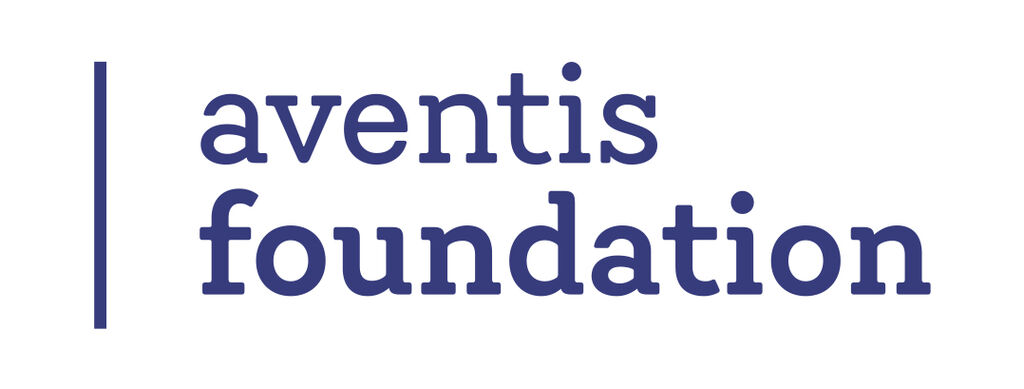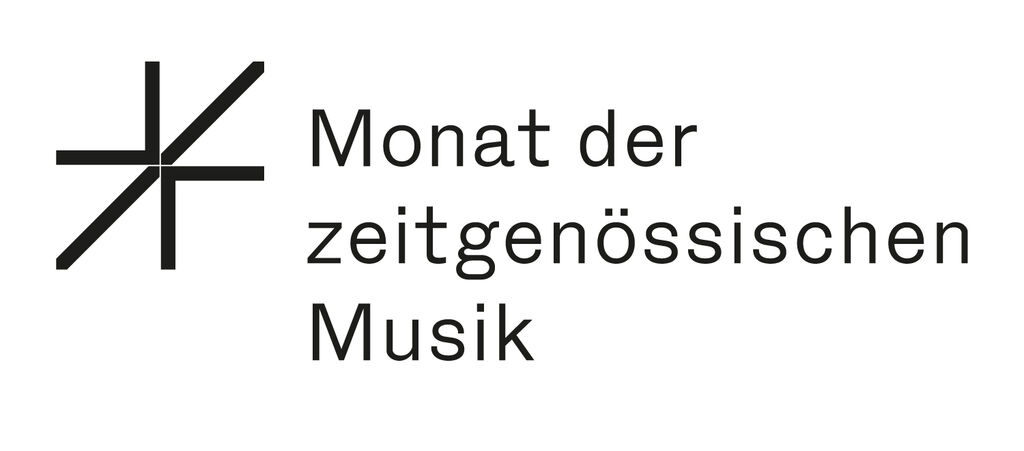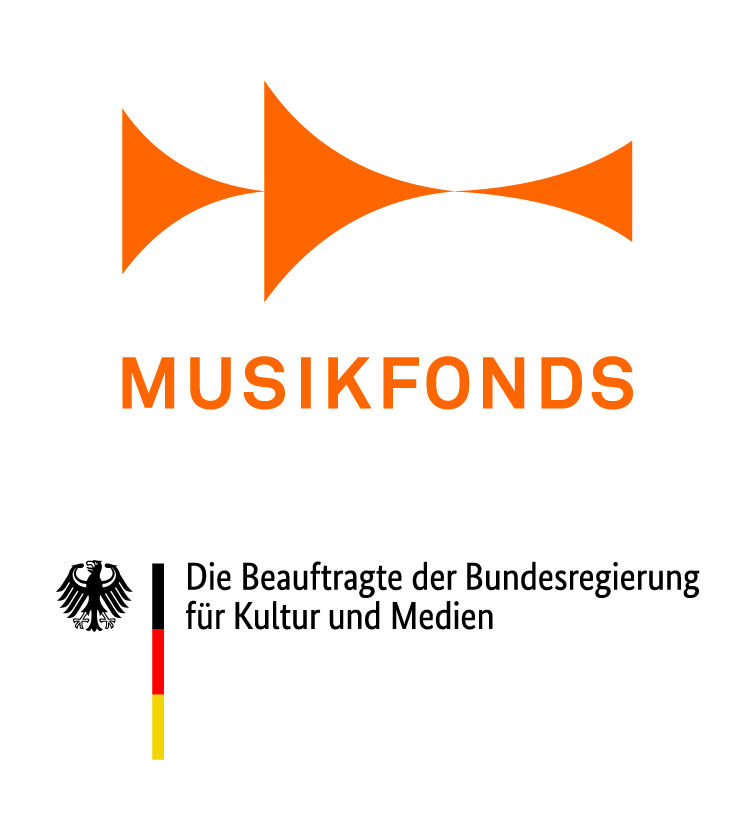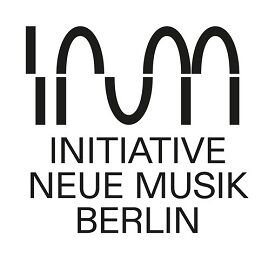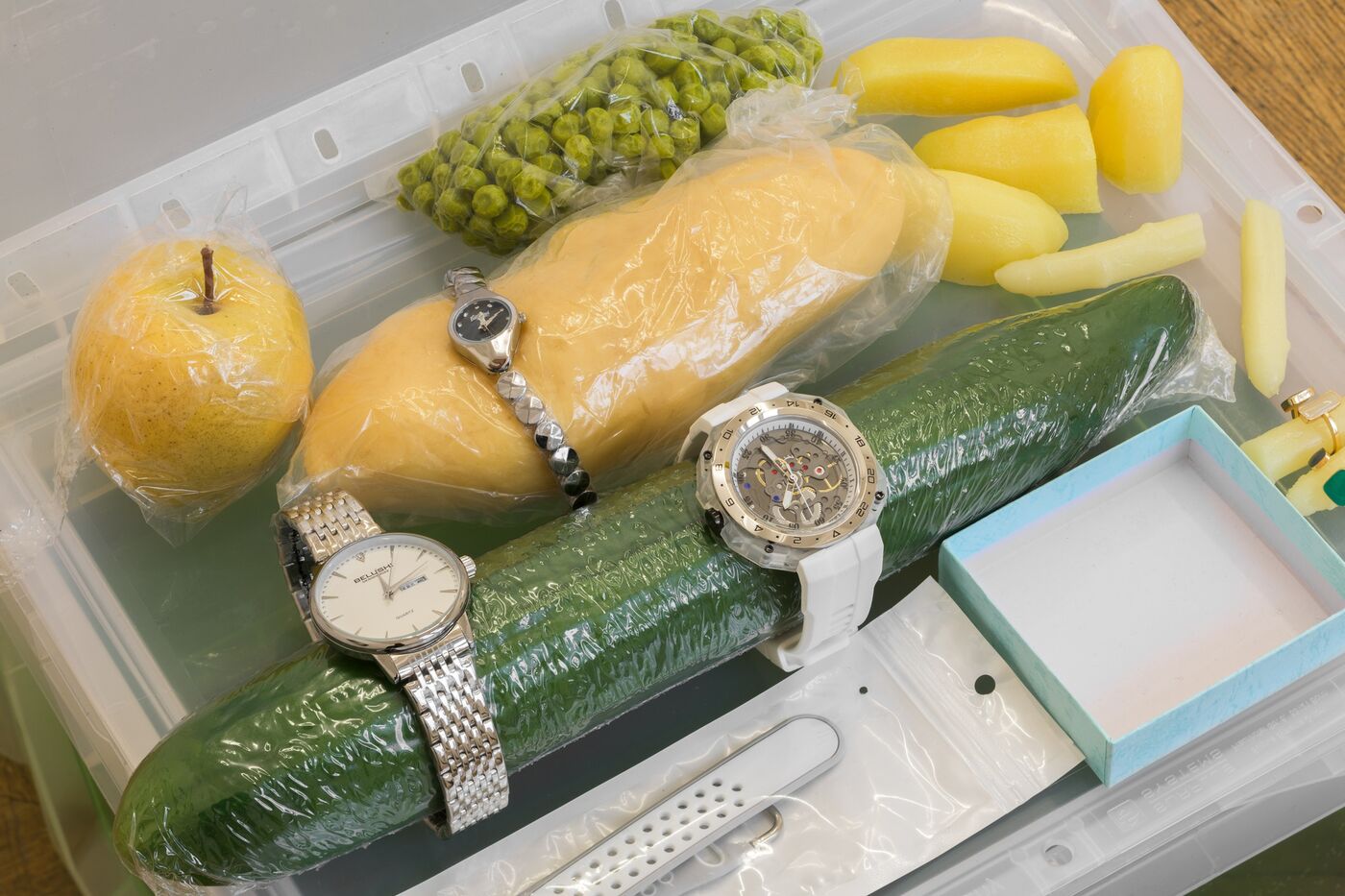Somehow We Can
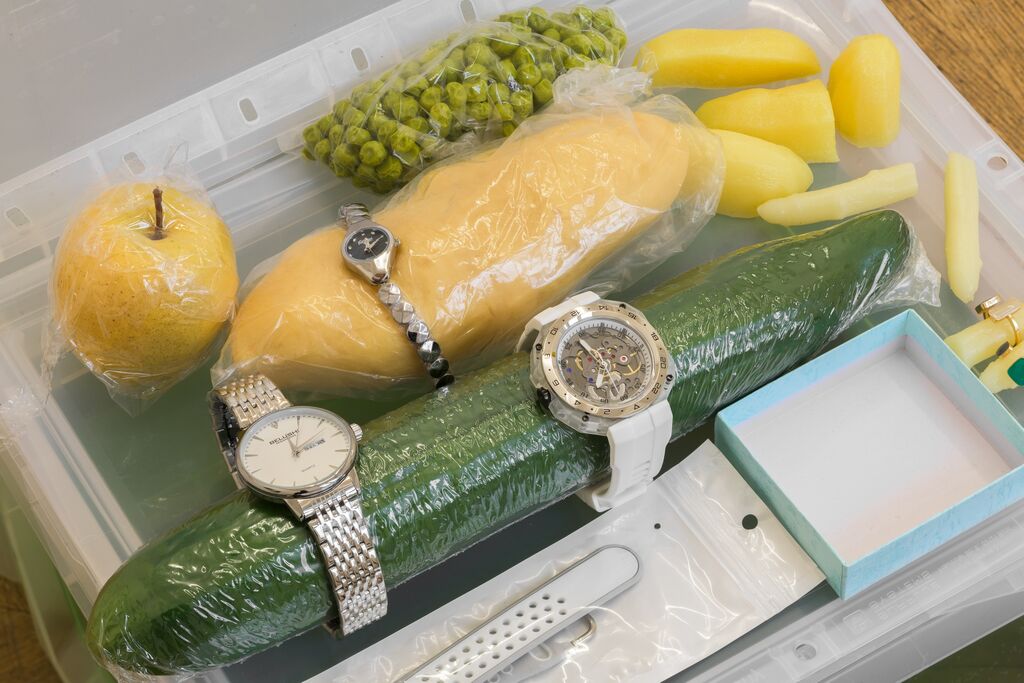
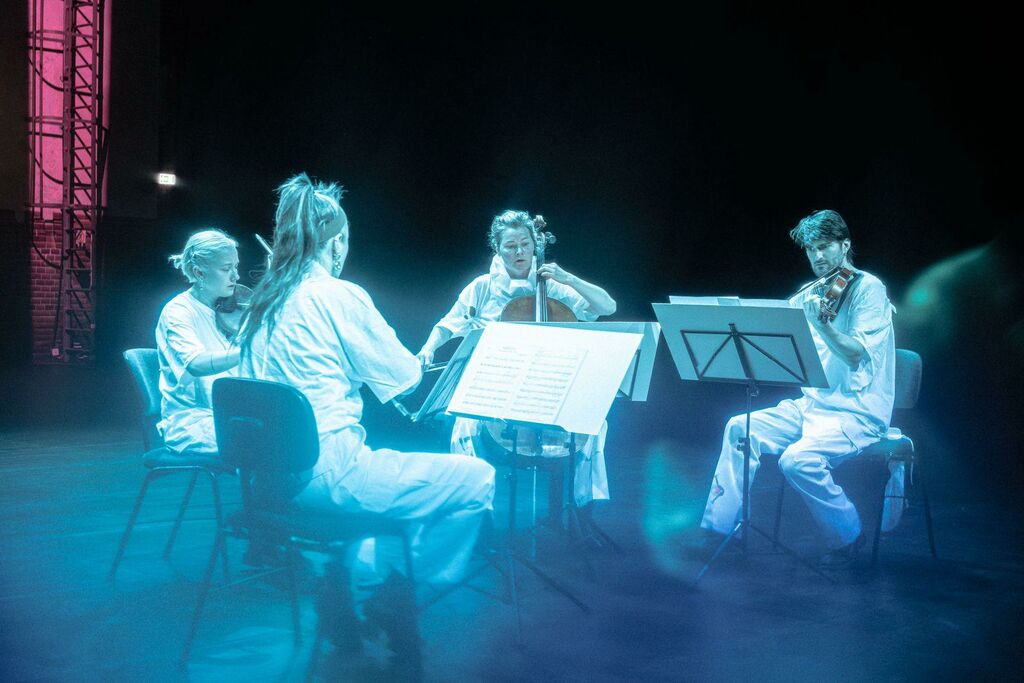
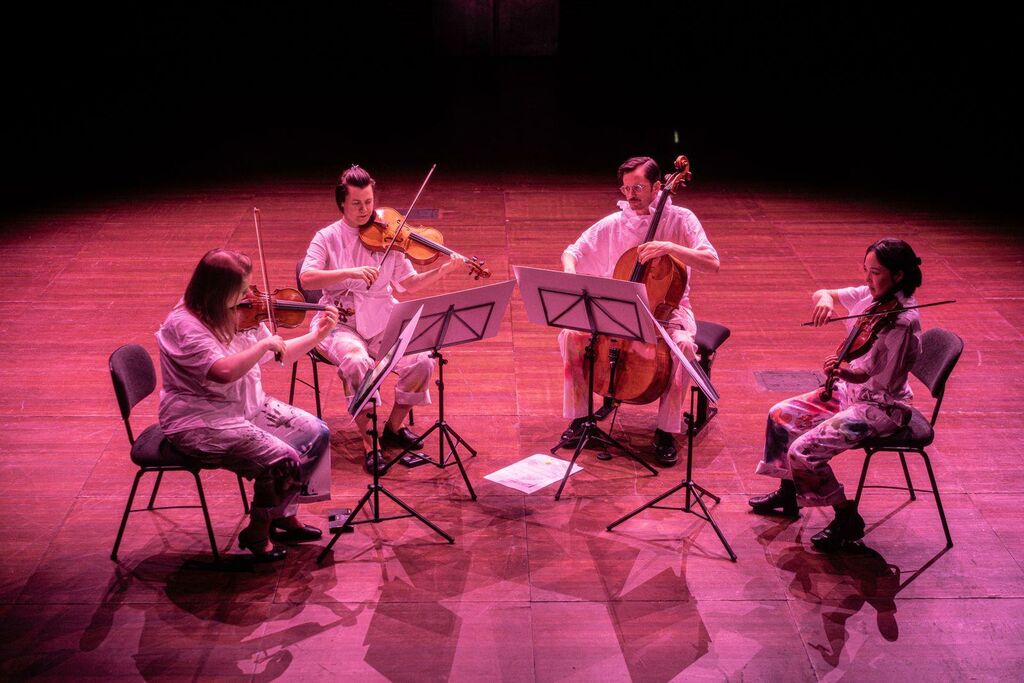
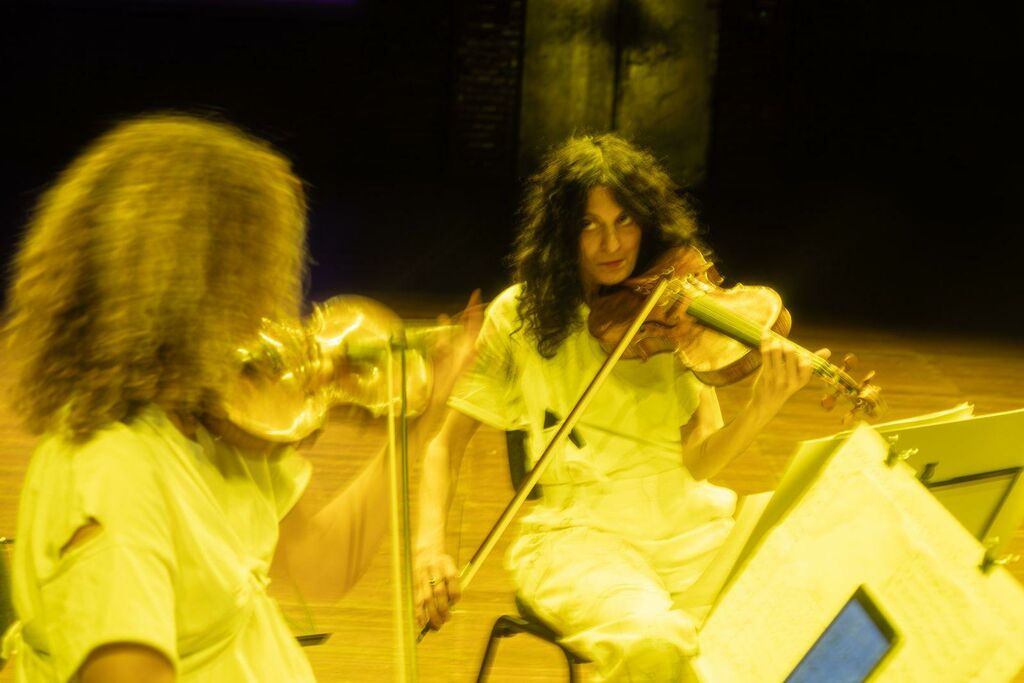
With SOMEHOW WE CAN, the Solistenensemble Kaleidoskop explores the complexity and expressive power of the string quartet. Curated by Ethan Braun – composer and longtime artistic collaborator of the ensemble – the project brings together eleven composers and twelve performers who jointly examine the flexibility and relevance of this long-standing musical form. They present the string quartet as a living, intricate web of relationships – a collective expression of art, identity, and society.
Following its premiere in June 2025 at Radialsystem – presented as a full concert featuring all three parts – the project continues in fall 2025 as a three-part performance series at various art venues across Berlin. Each evening enters into direct dialogue with the artworks on site, offering new perspectives on music and context.
With a keen sense for sonic diversity, cultural context, and musical idiosyncrasy, the program assembles works that rethink the string quartet both in content and form. These compositions span from deconstruction and improvisation to focused sonic research and poetic intimacy. Several works are being performed in Europe for the first time. The program also amplifies voices that have often been marginalized within the canon of contemporary music – such as those of BiPoC and LGBTQ+ composers. Together, they weave a musical fabric that doesn’t smooth over difference but makes it productively audible – inviting audiences into a multifaceted, collective experience.
The first set opens with Yuri Umemoto’s Fluffy Pink!—an ecstatic, tentacled ode to Otaku culture, where four strings stretch into octopus-like moe. Yaz Lancaster’s Neutral Objects elevates theeveryday—milk, masks, mailboxes—into a dadaistic harmony of pandemic-era symbols. In Misato Mochizuki’s Boids, scales become “personalities” flocking in motion, only to scatter and regather under the cello’s intervention. Affines from Sarah Hennies bends pitch, tempo, and repetition into warped time—subtle, strange, pliable.
The second set begins with prescient musicalizing of a landmark: Wadada Leo Smith’s String Quartet No. 17 – The Capitol Buildings, Grounds, and Washington D.C. Movement 2: The Lincoln Memorial weaves a heterogeneous precision of melodic phrase, repetition and structural misalignments. Sarah Davachi’s Icon Studies II transforms microtonal shifts into a visceral monumentality that breathes, hoarsely. Henry Threadgill, along Smith a member of the Association for the Advancement of Creative Musicians (AACM), brings improvisation into notated form in Sixfivetwo, with soloists given intervals and chords by which to pass over jagged ensemble counterpoint.
Raven Chacon’s Journey of the Horizontal People leads the third set with themes of navigation, disorientation, and reconvergence. In the instructions that come with the score, the composer writes “it is preferred that the quartet performing this work contains a female player. This player will be the guide when all others are lost.” In Ted Hearne’s Overlay (for David Lang), the viola is the “singer,” threading a delicate, persistent line echoing Lang’s own music. Alvin Singleton’s Somehow We Can—the program’s sole pre-2011 work— unfolds through measured, classical gestures: a declarative theme, a choral texture, a plaintive melodic line that form a structure built on variation and recurrence. A form inclusive of confrontation, it leaves the tension of difference in suspense. It’s a form inclusive of confrontation. Cassandra Miller’s Leaving closes with close listening. A gentle exit, an emotive easing away from density, Miller’s work transcribes a friend who’s a fiddler and bird song into a speculative Pacific Northwest folklore.
The program shows how the string quartet remains a living, malleable form—responsive for contemporary visions and values. That elasticity may not have been apparent when it was first meant to speak plainly to the ears of “rational citizens.” Now, it effortlessly stretches to hold many voices, identities, and contradictions of our dissonant present.
Programm
Yuri Umemoto – Fluffy Pink! (2020)
Yaz Lancaster – Neutral Objects (2020)
Misato Mochizuki – Boids (2018)
Sarah Hennies – Affines (2020)
Pause I
Wadada Leo Smith – String Quartet No. 17 The Capitol Buildings, Grounds, and Washington D.C. Movement 2: The Lincoln Memorial (2023)
Sarah Davachi – Icon Studies II (2021)
Henry Threadgill – Sixfivetwo (2018)
Pause II
Raven Chacon – The Journey of the Horizontal People (2016)
Ted Hearne – Exposure III: Overlay (2019)
Alvin Singleton – Somehow We Can (1993)
Cassandra Miller – Leaving (2011)
Somehow We Can
Somehow We Can
Somehow We Can
Somehow We Can
A project by Solistenensemble Kaleidoskop.
The concert series Somehow We Can #1–3 is made possible with the kind support of the Aventis Foundation.
The concerts #1 and #2 are part of the Month of Contemporary Music Berlin of initiative neue musik e.V. / field notes berlin.
The concert Somehow We Can at Radialsystem is funded by Musikfonds e.V. by means of the Federal Government Commissioner for Culture and the Media and the inm – initiative neue musik berlin e.V. / field notes In cooperation with Radialsystem
The Solistenensemble Kaleidoskop is receiving institutional funding as one of the independent groups without their own performance venue from the Senate Department for Culture and Social Cohesion.
